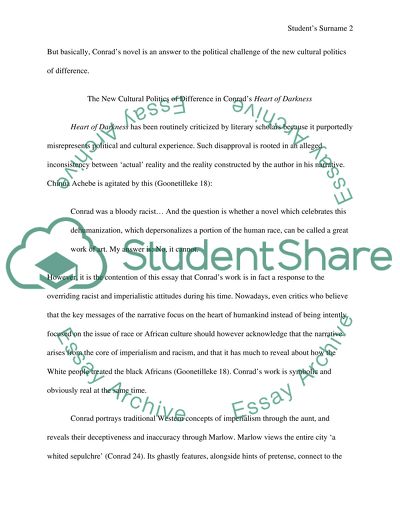Cite this document
(“Race and discourse analysis in Heart of Darkness (Joseph Conrad) Essay”, n.d.)
Retrieved from https://studentshare.org/literature/1466251-race-and-discourse-analysis-in-heart-of-darkness
Retrieved from https://studentshare.org/literature/1466251-race-and-discourse-analysis-in-heart-of-darkness
(Race and Discourse Analysis in Heart of Darkness (Joseph Conrad) Essay)
https://studentshare.org/literature/1466251-race-and-discourse-analysis-in-heart-of-darkness.
https://studentshare.org/literature/1466251-race-and-discourse-analysis-in-heart-of-darkness.
“Race and Discourse Analysis in Heart of Darkness (Joseph Conrad) Essay”, n.d. https://studentshare.org/literature/1466251-race-and-discourse-analysis-in-heart-of-darkness.


